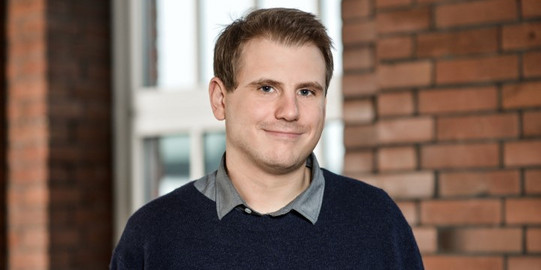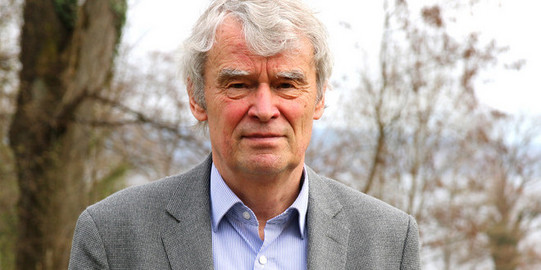Sociodigital transformation of work and organisation
The structures and conditions of employment influence the quality of life for most people. Current socio-structural developments (e.g. climate change, Covid crisis) and the new possibilities of digitalisation are rapidly changing living and working conditions. Politicians, scientists, trade unions and businesses are addressing many new questions such as: How will we work in the future? How do people want to work? Where will jobs be lost and where will new jobs be created? How do people’s expectations match up with the requirements of modern work? How can digital technologies support the ideas of “good work”? How do work and workplaces have to be designed?
The work of the future is an interest-dependent and contested terrain that demands complex negotiation processes, new forms of participation, and adapted regulatory patterns. Adapting to changing conditions with innovative approaches (networking, autonomous systems, new business models, socio-demographic change, etc.) and innovations in work organisation will require qualification and/or the cooperation of company actors. Within the scope of our research work, we investigate these developments in work and organisation in companies and enterprises.
Our research work aims firstly to empirically identify real development processes and possible development paths. The findings are presented for discussion in public and scientific discourses. Secondly, we develop design knowledge to promote learning and adaptability on the part of company actors. This includes aspects of qualification as well as structures and processes of organisation and management. We develop tools and guidelines for practices (guidelines, design criteria, instruments) in order to facilitate improvement and expand employees’ scope for decision-making. We provide a social science based understanding of intervention as well as instruments to support learning and participation processes in companies. A central starting point is the mobilisation of employees’ experiential knowledge through the problem-focused organisation of self-reflection processes, and the development of new communication and cooperation structures.
Theoretical-conceptual references and methodology
The theoretical-conceptual base of our work lies in concepts such as social innovation and in socio-technical and socio-digital concepts. We follow an approach that focuses on the dynamic interplay between technological and social innovations. Thus new technologies can provide impetus to change existing practices and structures. Social effects depend on the specific contexts of use and are not determined by the technology, but must be actively designed.
Our research area is based on a long-standing tradition in industrial, labour and organisational sociology. In light of the above-mentioned approaches, we draw on quantitative and qualitative methods of social and labour research as well as on our own concepts and instruments of organisational design and development.
Transformation of work and organisation
Digitalisation and artificial intelligence are important forces for corporate and societal change, but they are embedded in further “megatrends” and processes. In this broader perspective, we examine current challenges for employees and businesses. For example, we develop approaches to organisational adaptability that consider not only technical factors, but also social aspects and the competencies of employees at different levels. In other projects, new strategies and approaches are developed in collaboration with partners from science and politics, in which technological developments are linked with business and work-related requirements. Further topics focus on reorganisation and networking, work organisation, qualification and the transformation of low-skilled work.
Key questions:
- What are the current challenges for the design of work resulting from economic and social change?
- How can structural change in the world of work be designed in a socially acceptable way?
- How can the acceptance of change processes be increased, and innovation processes linked to design processes?
Co-determination and representation of interests
Co-determination and representation of employees' interests within companies (supervisory boards), within companies (works councils) and across companies (collective bargaining autonomy) are important elements of the German economic system. It is important to investigate how em-ployees use the participation rights institutionally available to them and which operational and insti-tutional development potentials are necessary and feasible. Important perspectives are the social internal structure and micropolitically based decision-making processes in participation bodies such as the works council.
The transformation of the world of work, currently predominantly addressed under the headings of "digitalization" and "socio-ecological transformation," must be shaped in terms of the health and economic needs of the workforce. In shaping change, trade unions, works councils and supervisory boards perform not only a protective but also a formative function. In this context, we are interest-ed in the role and potential of institutionalized employee representation in the invention and diffu-sion of social innovations. This requires an analytical multi-level perspective (company, regional, national, European).
Key questions:
- How do employees participate in corporate policy decisions?
- How can co-determination be expanded with regard to economic democracy?
- What innovation potential can institutionalized employee participation bring to shaping change in the world of work and in what ways?
Participation and empowerment
Participation is the key factor for placing people at the centre of the world of work. Participation means incorporating the experience and demands of employees substantially into the description, evaluation and modification of their work situation (e.g. in processes of reorganisation or introduction of new technologies). Sustainable participation approaches are aimed at the empowerment of employees. They strengthen their ability to self-organise, their autonomy of action and their capacity to make decisions, not only in the execution of their work, but also in the design of their work conditions. We are interested in how cooperation between employees, works councils, management and executives must be shaped; which management and leadership concepts are required; which infrastructures and resources are needed; how adequate knowledge management can be developed; and which competencies are important in participation processes and how they can be built up.
Key questions:
- How can works councils be supported in coping with the digital transformation process?
- How can participative management and leadership approaches be improved under the current challenges of digitalisation?
Innovation and knowledge
Innovative capability is considered a prerequisite for competitiveness and improved work conditions. We follow an understanding of innovation that emphasises social dimensions and considers new technologies as design-related “enablers”. Our focus is on how to expand the organisational requirements, competencies and power of employees in a way that they can become drivers of improvement and innovation processes as well as new business models. The ability to innovate is increasingly dependent on the use of external sources of knowledge and these being integrated into organisational practices. We are concerned with company-driven forms of involving customers and users for the purpose of product development and design, and with civil society efforts to bring societal needs to the attention of companies (open innovation and co-creation).
Cooperation between institutions representing employee interests, such as trade unions, works councils, staff councils and supervisory boards, and (labor) science also enables the development of important innovations in labor policy. We contribute to this by shaping cooperation with local trade union bodies and company interest representation bodies through exchange and joint projects - in keeping with the tradition of the former Cooperation Center for Science and Working Life Dortmund. On a national level, we cooperate with the numerous cooperation centers in Germany.
Key questions:
- How can the inclusion of employee competencies in decision-making and problem-solving processes be improved?
- What new forms of integration of knowledge from outside the company are emerging, and how does this change the value creation process?
- How can cooperation between science and the world of work bring the employee perspective into company and social innovation processes?
In 2018, the “Industrial and labour research” (Forschungsgebiet Industrie- und Arbeitsforschung, FIA) research area in the former Department of Economics and Social Sciences at TU Dortmund University (under the direction of Prof. Hartmut Hirsch-Kreinsen) was assigned to the Social Research Center (Sozialforschungsstelle, sfs). The research area investigates the prospects of new industrial work in the context of digitalisation and Industry 4.0 (www.einfacharbeit.de). In various projects, we are investigating, among other things, the introduction of cyber-physical systems (CPS) in small and medium-sized enterprises, the use of digital assistance systems, and “hybrid” forms of human-technology interaction in production and logistics. One focus is on the definition and future of low-skilled work (www.einfacharbeit.de). In our studies, we identify, among other things, path dependencies in the implementation of new technologies, and different development scenarios for the future of work. In addition to the scientific interest in knowledge, one of the main goals of our work is to contribute to the objectification of the public and scientific discourse on the topic of automation, Industry 4.0 and its social challenges.
Key questions:
- How is industrial work changing with the introduction of digital technologies in production and logistics (Industry 4.0, artificial intelligence)?
- What are the different functionalities of digital technologies and development paths of work?
Due to our inter- and transdisciplinary approach, we are regionally and nationally interconnected with social science institutions and technical research institutes (e.g. Fraunhofer IML, Fraunhofer IAO, FIR, RWTH Aachen, Ruhr-University Bochum), as well as with foundations and trade union organisations. We have a wide range of cooperative relationships with small and medium-sized businesses. We are active in the labour research network of social science research institutes in North Rhine-Westphalia as well as in other labour and industrial sociology networks. As a co-initiator of the European Network of Workplace Innovation (EUWIN) we examine the concept of workplace innovation as a social innovation on a European level.
- Change@Ruhr: FUTURE HUBS FOR SMEs: WORK-ORIENTED DESIGN OF DIGITAL CHANGE (MAGS NRW)
- VISITS: Networking and Interaction Work in Smart Technical Services (BMBF)
- eLLa4.0: Good Leadership and Work in Sociodigital Transformation (BMBF)
- Operational strategies for coping with environmental dynamics and the role of employees: Preconditions and Competence Development in Adaptation-Intelligent Factories (DFG)




![[Translate to English:] [Translate to English:]](/storages/zentraler_bilderpool/_processed_/a/f/csm_Kontakt_b86e8d8ecc.png)
![[Translate to English:] [Translate to English:]](/storages/sfs-sowi/_processed_/6/c/csm_Glasfront_sfs_Header_eae6d325d3.jpg)












